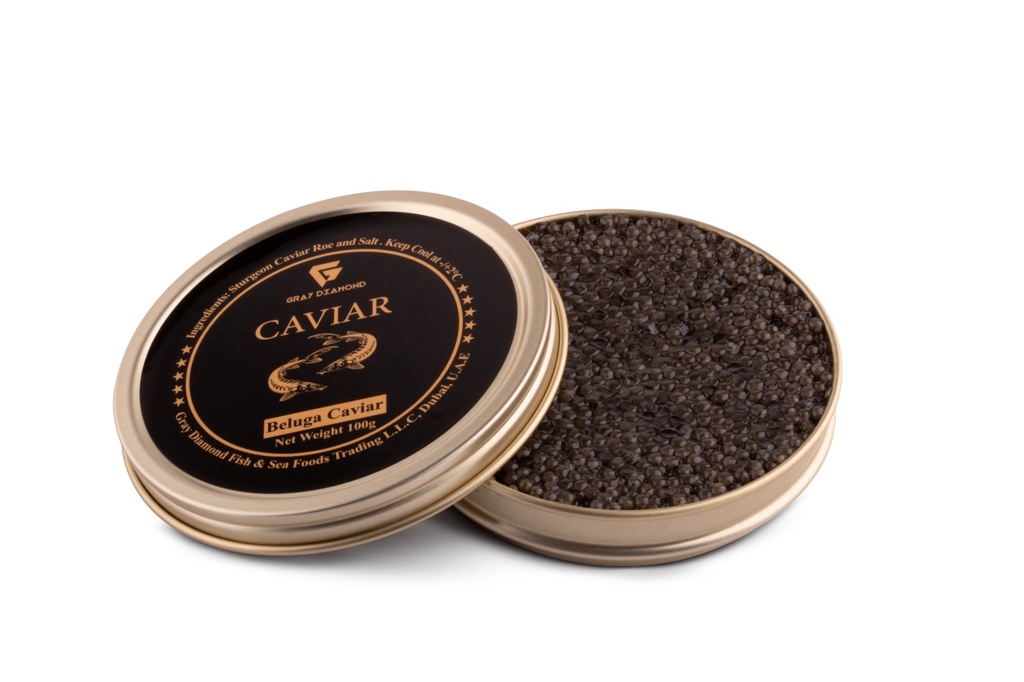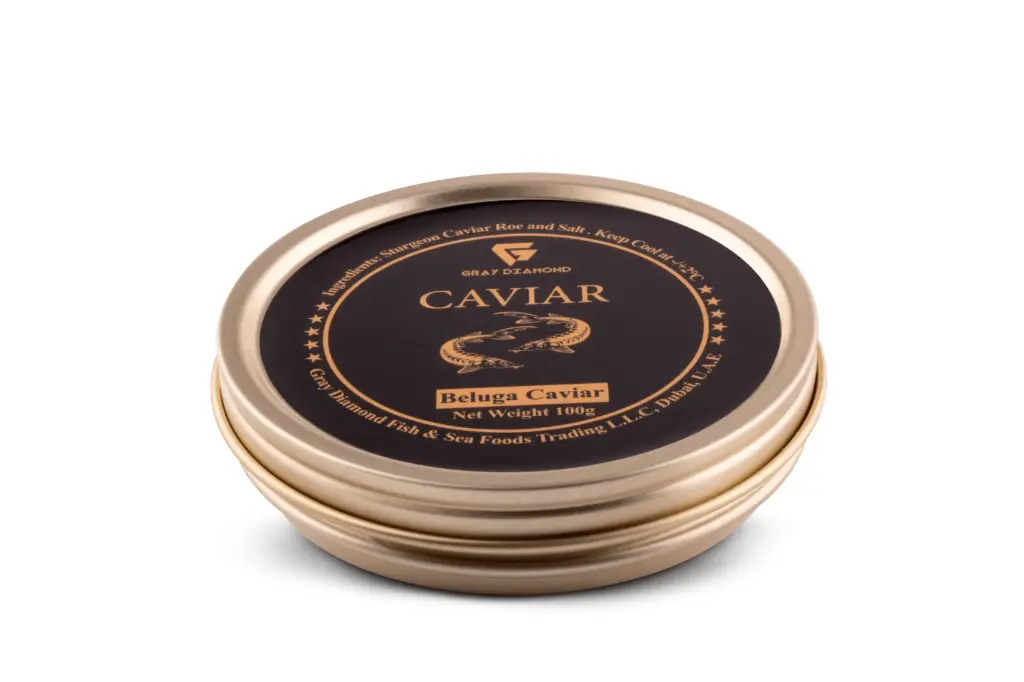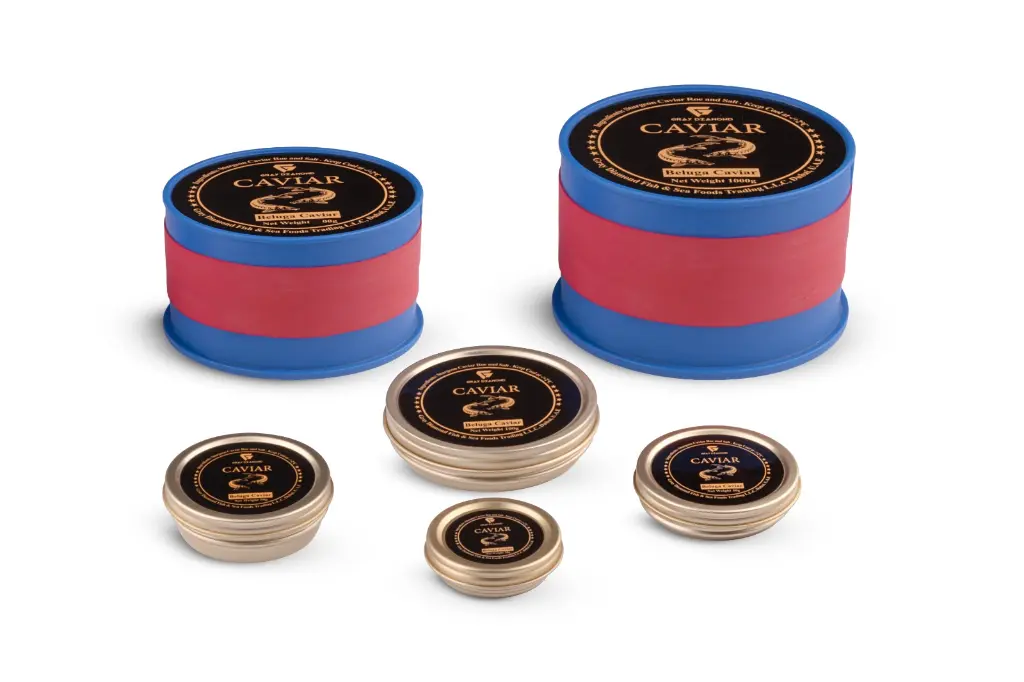Beluga
Beluga caviar, the rarest and most luxurious of all caviars, is harvested from the beluga sturgeon (Huso Huso), which matures after approximately 20 years and has an impressive lifespan of 80 to 100 years. It primarily thrives in the pristine waters of the largest saltwater lake in the world, the Caspian Sea. Eggs harvested from this remarkable creature are larger than those of other sturgeon species, ranging in colour from pale gray to dark gray. Notably, eggs from older fish tend to exhibit lighter hues that are highly valued and appreciated among discerning connoisseurs. Being the epitome of luxury in the world of gourmet cuisine, beluga caviar captivates the palate with its creamy texture, delicate hints of citrus, and unparalleled lingering oceanic taste.
To maintain the preserved eggs intact, fresh caviar should be refrigerated rather than frozen. When serving caviar, it is essential to use appropriate materials such as mother-of-pearl, wood, glass, gold, or plastic. Caviar could be tainted by reactive metals like steel, silver, and bronze, so it is best to avoid using them. It should be opened immediately before serving while kept chilled with its tin immersed in ice to maintain its pristine condition.
Caviar makes an exquisite appetiser when accompanied by a selection of complementary ingredients such as scallions, hard-boiled eggs, cheese, miniature toasts, cream, and lemon wedges. Moreover, caviar serves as an elegant garnish for a variety of dishes, including fish, meat, and potatoes, adding a touch of sophistication and indulgence to any culinary creation.





